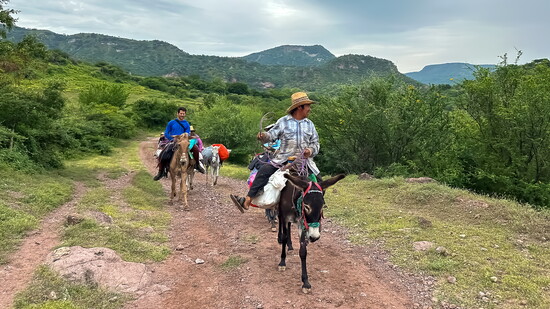Born and raised in Arkansas with Assyrian heritage, educator and filmmaker Shmuel Tamo employs art and a collaborative spirit to partner with Indigenous populations in sharing their powerful stories.
In 2023, Shmuel founded the non-profit Indigenous Roots Productions (IRP), which uses oral history as a research method, capturing firsthand accounts that can be passed down through generations. This approach honors Indigenous traditions while creating a lasting, community-centered record.
By providing Indigenous nations with filmmaking tools and knowledge, IRP fosters self-empowerment, enabling communities to preserve and share their cultures with full informed consent.
“The vision here, since we're using oral history research method, is to build a diverse, Indigenous archive supported by consistent methodology,” Shmuel says. “From there, we can look at local, regional and global patterns affecting Indigenous people around the world.”
IRP’s debut film, Sights and Sounds of the Assyrian Diaspora: Art in Response to Statelessness, features 13 Assyrians reflecting on how art helps them cope with the trauma of war and displacement. But IRP’s work doesn’t end at the Assyrian experience. Shmuel is committed to supporting any Indigenous nation seeking reclamation.
IRP’s current project, Espíritu, focuses on the Náhuatl village San Miguel Tecuiciapan in Mexico’s High Balsas region. The film showcases the community and its centuries-old Día de Muertos traditions, such as planting flowers, baking doll-shaped bread for departed children and making offerings at ancestral altars.
Espíritu also brings awareness to environmental justice, specifically the contamination of the Río Balsas, a river where maize was first domesticated and continues to sustain more than 40,000 Nahua people. Both a lack of funding and outside industrial development have led to the contamination of Río las Balsas.
“Not only can more awareness help us when it comes to cultural loss, genocide, statelessness and diaspora, but also bringing in financial resources and political representation — that’s going to lead to concrete change,” Shmuel says.
Planting the seed
Before launching IRP, Shmuel taught sixth-grade world history and coached cross country for seven years in Little Rock. He studied international studies and sociology at the University of Central Arkansas and earned a master’s degree in social justice and human rights from Arizona State University.
But it was his lived experience as a diasporic Assyrian that became a true catalyst for IRP.
“My father was born and raised in Mesopotamia. He came here to go to school and met my mom,” Shmuel says. “I had this outside cultural influence that really drove me to look deeper into my heritage and who I am as an Assyrian.”
During his 2009 and 2010 visits to Khabour, a region in northern Syria, Shmuel walked the same land where his ancestors had sought refuge after fleeing Iraq nearly a century earlier.
“I started to get to know family members that I had never met,” he says. “I started to be immersed in the language and in the cultural vibrations that, for a long time, I thought were what set me apart, what made me an outcast.”
He describes watching the sunrise over the Syrian desert as a physiological and spiritual experience.
“Setting foot on my ancestors' homeland for the first time brought a connection and an understanding of who I am in a way that you will not get unless you can go home,” Shmuel says.
By the time Shmuel was ready to return in March of 2011, the Syrian civil war had begun, rendering him incapable of traveling safely and leading to the loss of family.
“Each time that happens, that means that the next generations are more disconnected from our roots, more disconnected from culture and heritage and language, more disconnected from cousins, aunts, uncles, and often don't even get to meet these other family members,” Shmuel says.
Drawing from his own experience of cultural displacement and reconnection, Shmuel set out to build something rarely seen: a platform where Indigenous communities could document their histories on their own terms.
In full bloom
Since IRP can present academic research findings through film, Shmuel envisions creating a completely Indigenous-led research database that schools and universities can use to educate and drive meaningful change.
Looking ahead, he foresees many more collaborations with Indigenous nations across the globe. Through on-the-ground workshops and access to film equipment, IRP plants "the seeds of inspiration” for Indigenous peoples to produce their own storytelling projects.
Once a film is complete and ready for release, the partnering Indigenous nation determines who can access it and where it will be streamed, ensuring full autonomy over their narratives.
“We need our collaborations between different Indigenous peoples to build a chain between us to strengthen Indigenous rights and identities,” Shmuel says.
Through IRP, Shmuel hopes to form collaborations to preserve and protect Indigenous voices worldwide so future generations will know, understand and honor them. For more information or to volunteer, visit indigenousrootsproductions.org or contact stamo@indigenousrootsproductions.org.
“Setting foot on my ancestors' homeland for the first time brought a connection and an understanding of who I am in a way that you will not get unless you can go home."
“We need our collaborations between different Indigenous peoples to build a chain between us to strengthen Indigenous rights and identities."
